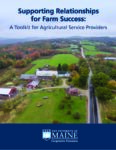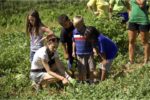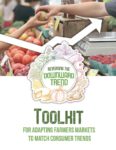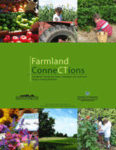Showing 1-7 of 7 results
How Alive is My Soil?
This guide presents soil testing methods that can be performed in the field by farmers, gardeners, or anyone who desires to understand and appreciate soil from a different perspective. While these tests aren’t intended to be a replacement for sending soil to a lab, they can be considered complementary to annual or biannual lab analysis.

Supporting Relationships for Farm Success
It is not uncommon that the barriers to implementing changes on the farm are not related to production or marketing but rather interpersonal or "non-technical" issues like effective communication, decision-making, goal setting and time management. This toolkit was created by Dr. Leslie Forstadt, University of Maine Cooperative Extension, and Abby Sadauckas, Apple Creek Farm, as […]

Vermont Food Education Every Day
Includes guides for farmers and food service personnel working to increase local food in schools.

Reversing the Downward Trend
Farmers across the Northeast have reported decreases in consumer participation at farmers' markets and reduced sales. This toolkit was developed as a result of survey research that looked at consumer perceptions of shopping at farmers' markets. The publication provides information on marketing strategies and services aimed to help farmers' market managers and farmers understand what […]
Assessing the Economic Impacts of Regional Food Hubs: the Case of Regional Access
This report assesses the economic impact of food hubs on the distribution and sale of local foods.

The Baltimore Farm Alliance
Lessons learned while building a farm alliance in Baltimore, MD.

Farmland ConneCTions
A guide for towns, institutions, and land trusts using or leasing farmland.